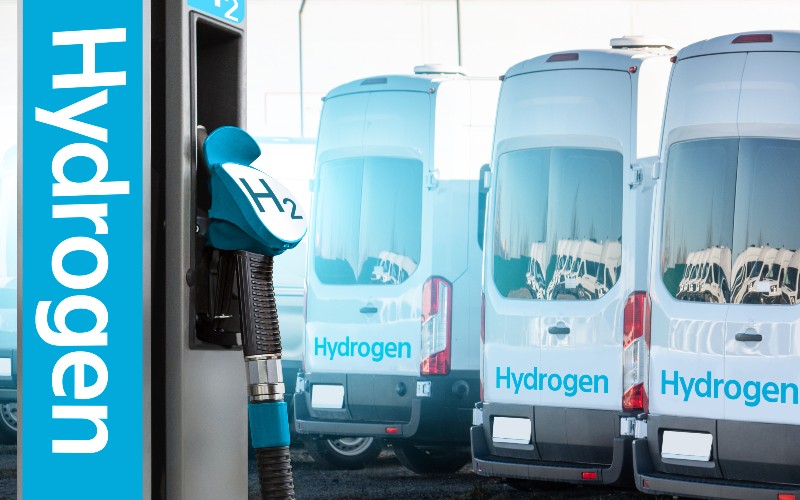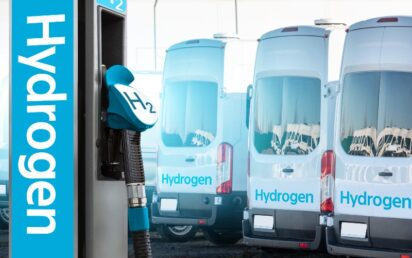Hydrogen-fuelled buses and HGVs which run on electric propulsion technology are closer to hitting the road after new funding was announced.
The £54 million in government-led funding will benefit three projects, coordinated by the Advanced Propulsion Centre, which supports the development of low carbon emission technologies for cars, buses, heavy goods vehicles and vans.
The APC said the projects will help further the UK’s ongoing efforts to develop a sustainable supply chain for manufacturing electric vehicles by 2026, while also claiming they will secure nearly 10,000 UK jobs and save millions of tonnes of carbon emissions.
31.9m will be allocated to develop electric propulsion systems for heavy goods vehicles in Cwmbran, Wales. This technology could be applied in a range of ways, such as giving lorries greater travel range and better energy efficiency for coaches and construction vehicles.
£11.3m will be used to develop and manufacture energy-saving technology from motorsport for use in cars and vans from a centre in Warwickshire.
£11.2m will go towards the development and manufacture of low-cost hydrogen fuel cell technology for buses and create a hydrogen centre of excellence with Wrightbus in Ballymena, Northern Ireland.
https://businesscloud.co.uk/record-year-for-impact-investing-and-sustainable-tech/
“The UK is leading the world by developing cutting edge technology that will help to tackle climate change and lead to a green, competitive future for our automotive supply chain,” said Business Secretary Kwasi Kwarteng.
“These projects will not only help accelerate the wider application of greener technology in lorries and buses, but will also help generate the high-skilled jobs to level up communities across the UK while ensuring we build back greener from the pandemic.
“This funding announcement builds on the recent launch of the government’s national Bus Back Better strategy and the Prime Minister’s 10 Point Plan for a Green Industrial Revolution, both of which aim to accelerate the shift to zero emission vehicles and decarbonise the UK’s transport networks.”
CEO at the Advanced Propulsion Centre, Ian Constance, added: “We are delighted to have guided the latest investment of more than £54 million in the development and production of innovative powertrains to further accelerate the transition of the automotive sector to a net-zero future.
“The funding will enable the UK to apply its world-class innovation and experience in electrification of vehicles across the supply chain in Great Britain and Northern Ireland.
https://businesscloud.co.uk/graphene-project-to-give-world-access-to-safe-drinking-water/
“From fuel cell technology for buses, designed and built in Ballymena, a lightweight electric powertrain for commercial vehicles developed and manufactured in Wales and an integrated motor and energy recovery systems system for cars and vans based on motorsport technology in Warwickshire, today’s announcement secures and creates nearly 10,000 jobs and will cut CO2 emissions equivalent to removing the lifetime emissions of nearly 1.8 million cars.
“By investing in new, greener technology for the UK automotive sector, funding of this kind will help realise the government’s ambition for the UK to end its contribution to climate change by 2050.”


